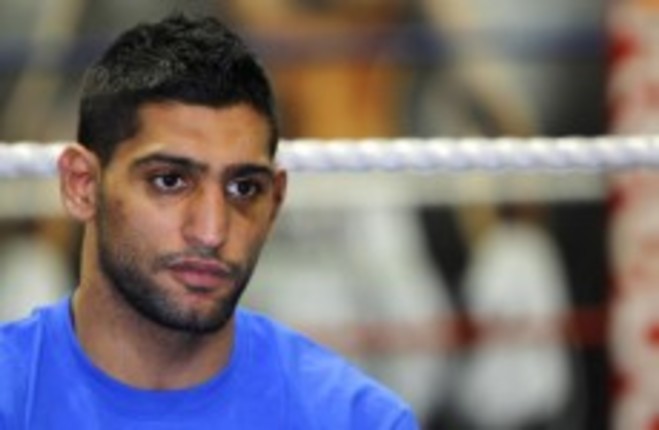“The referee is going to be the most important person in the ring tonight besides the fighters.”
WHAT THE ABOVE quote from George Foreman lacks in subtlety, or clarity, it more than makes up for in being obvious. Should anyone doubt the importance of the man in the middle of a boxing fight, they need only re-watch last Saturday’s fight between Amir Khan and Lamont Peterson.
Having failed to stay awake into the wee hours, I watched a replay of the fight on Sunday. I already knew the result, and that Khan was upset with the performance of referee Joseph Cooper. He took a point off the Englishman in Round Seven, for pushing, and then another midway through the final round for the same offence. Peterson was also fortunate in the first round, when what appeared to be a legitimate knockdown was not scored by Cooper, who himself had become entangled with the American fighter. Had even one of those close calls gone in Khan’s way, the changes in the judge’s scorecards would have seen him avoid defeat. However, they didn’t, and like the judges, I felt that Peterson just about edged the contest.
Ringside officials have to follow the instructions of a referee. If a fighter has a point deducted, judges (by and large) must follow the referee’s instructions. Therefore, when a fight goes the distance, those decisions can be crucial, as they were in Washington DC. A referee’s decisions are also crucial to the rhythm and flow of a fight. Like in rugby, the way in which rules are applied, and the way competitor reacts to this, can give one fighter an advantage, and Khan feels it was Peterson who prevailed in this manner last weekend.
“It was like I was against two people in there – the referee and Lamont himself. I was the cleaner fighter. I had to push him away because his head was coming so low.” His camp have now launched an appeal against the result, which I expect them to lose, and a rematch is likely in 2012, though Khan says that it will be held in a neutral venue, as he won’t return to Peterson’s hometown.
However, as he crows about last weekend’s result, Khan should remember that he himself has often been at the receiving end of kind treatment from officials. Against Marco Antonio Barrera, referee Dave Parris could have called a halt to proceedings early due to a bad cut above the Mexican’s eye. He didn’t, however, and the fight went five rounds, allowing the judges to declare him the winner. While earlier this year, Dungiven’s Paul McCloskey saw his world title fight with Khan dubiously stopped, at a point where he felt he was beginning to gain an advantage, again due to a cut.
I won’t go as far as saying ‘what goes around comes around’, but Amir Khan of all people needs to realise that hometown decisions can, and do, work both ways.
+++
Khan’s loss has continued a torrid month for British boxing, as he joined Martin and John Murray in losing world title fights this December. Tonight, a fourth man is set to join them, as Carl Froch is an outsider for his World Super Middleweight Title fight against Andre Ward. (SKY Sports 1, midnight)
The fight doubles as the final of the much-maligned Super Six contest, which has stumbled on for two-and-a-half years now, but has still produced some intriguing fights, none less than tonight’s contest. Ward’s speed and accuracy should mesh well with Froch’s tenacity, and with Steve Smoger as the man in the middle, both men will be allowed to go at it hammer and tongs. A win for Froch would be the most impressive win of a tough run of fights, but while I predict a Ward win, it will take a strong performance to slay the man they call the Cobra.
This Week In Boxing History
Appropriately, this week’s look back through the annals of boxing also highlights the importance of a referee, albeit in an entirely different manner. Naseem Hamed was already hot property in the UK on December 19th, 1997, when he walked out of his dressing room at Madison Square Garden for his fight with American featherweight Kevin Kelley. What followed would be four rounds of intense action with a total of six knockdowns. HBO’s Larry Merchant even called it the “Hagler-Hearns of the Featherweight Division,” which is probably an exaggeration. However, there’s no doubting that this was a pre-Christmas cracker.

